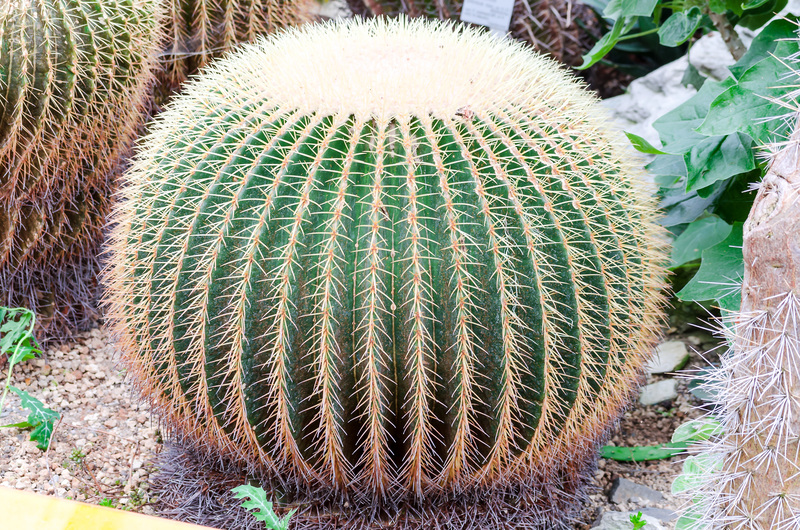How to Attract and Support Bees, Butterflies, and Other Beneficial Insects
Posted on 28/05/2024
Bees, butterflies, and other beneficial insects play a crucial role in our ecosystem. They are responsible for pollinating plants, which helps to produce food for us and other animals. Additionally, they help to control pest populations by feeding on harmful insects. Therefore, it is essential that we learn how to attract and support these beneficial insects in our gardens and outdoor spaces.
In this article, we will discuss the importance of bees, butterflies, and other beneficial insects, as well as ways to attract and support them. So let's get started!
The Importance of Bees, Butterflies, and Other Beneficial Insects
Bees, butterflies, and other beneficial insects are essential for the survival of plants and animals alike. Bees are responsible for pollinating approximately one-third of the food we eat. Without them, many fruits and vegetables would not exist. Butterflies also play a crucial role in pollination, especially for wildflowers. Other beneficial insects such as ladybugs, lacewings, and hoverflies help to control pest populations by feeding on harmful insects like aphids and mites.
Besides their important roles in the ecosystem, bees, butterflies, and other beneficial insects also add beauty to our gardens with their vibrant colors and delicate movements. By attracting and supporting these creatures in our outdoor spaces, we can create a more diverse and thriving environment.

Ways to Attract Bees
To attract bees to your garden or outdoor space, you need to provide them with food sources and suitable habitats. Here are some tips on how you can do that:
1. Plant Native Flowers: Native flowers provide bees with a familiar food source that they can easily access. They are also adapted to your local climate and soil conditions, making them an ideal choice for bee-friendly gardens.
2. Choose a Variety of Plants: Different species of bees have different preferences when it comes to flowers. By planting a variety of plants with different colors, shapes, and sizes, you can attract a diverse range of bees to your garden.
3. Avoid Chemical Pesticides: Chemical pesticides can be harmful to bees and other beneficial insects. Instead, opt for natural pest control methods such as companion planting or handpicking pests.
4. Provide Water: Bees need water for hydration, especially during hot summer days. Create shallow water sources like birdbaths or shallow dishes filled with pebbles for them to access safely.
Ways to Attract Butterflies
Butterflies are attracted to flowers that have nectar and pollen-rich blooms. Here's how you can attract butterflies to your garden:
1. Plant Flowers in Clusters: Butterflies prefer to feed on flowers that are grouped together rather than spread out. Planting flowers in clusters will make it easier for them to access food sources.
2. Include Host Plants: Host plants are essential for the survival of butterfly larvae (caterpillars). By including host plants in your garden, you provide a safe haven for them to grow and develop.
3. Use Colorful Flowers: Butterflies are attracted to bright colors, especially shades of yellow, orange, and red. Planting a variety of colorful flowers will not only attract butterflies but also add a vibrant touch to your garden.
4. Avoid Pesticides: As with bees, avoid using chemical pesticides in your garden as they can harm butterflies and their larvae.
Ways to Attract Other Beneficial Insects
In addition to bees and butterflies, there are many other beneficial insects that play a crucial role in maintaining a healthy ecosystem. Here are some ways to attract and support them:
1. Provide Shelter: Many beneficial insects need shelter to survive harsh weather conditions or predators. You can create shelters by leaving areas of your garden un-mowed or by building insect hotels using branches and twigs.
2. Leave Some Weeds: While weeding is essential, leaving some weeds in your garden can provide shelter and food for beneficial insects.
3. Incorporate Diversity: A diverse range of plants will attract a variety of beneficial insects. Including flowers, herbs, and vegetables in your garden will provide a range of food sources for them.
4. Avoid Pesticides: As mentioned earlier, pesticides can harm beneficial insects along with harmful ones. Opt for natural pest control methods instead.

Tips for Success
- Plant a variety of plants to attract a diverse range of bees, butterflies, and other beneficial insects.
- Choose native plants that are adapted to your local climate and soil conditions.
- Incorporate diversity in your garden by including flowers, herbs, and vegetables.
- Avoid using chemical pesticides as they can be harmful to all types of insects.
- Provide water sources for bees and other insects to access safely.
Takeaways
Bees, butterflies, and other beneficial insects are crucial for the health and vitality of our ecosystem. By following the tips mentioned in this article, you can create a welcoming environment for these creatures in your outdoor space. Remember to avoid chemical pesticides, incorporate diversity, and provide water sources to support their survival.
In conclusion, attracting and supporting bees, butterflies, and other beneficial insects is not only beneficial for the environment but also adds beauty to our gardens. With a little effort and care, we can create a thriving ecosystem that benefits everyone. So let's do our part in preserving these essential creatures and their habitats.




